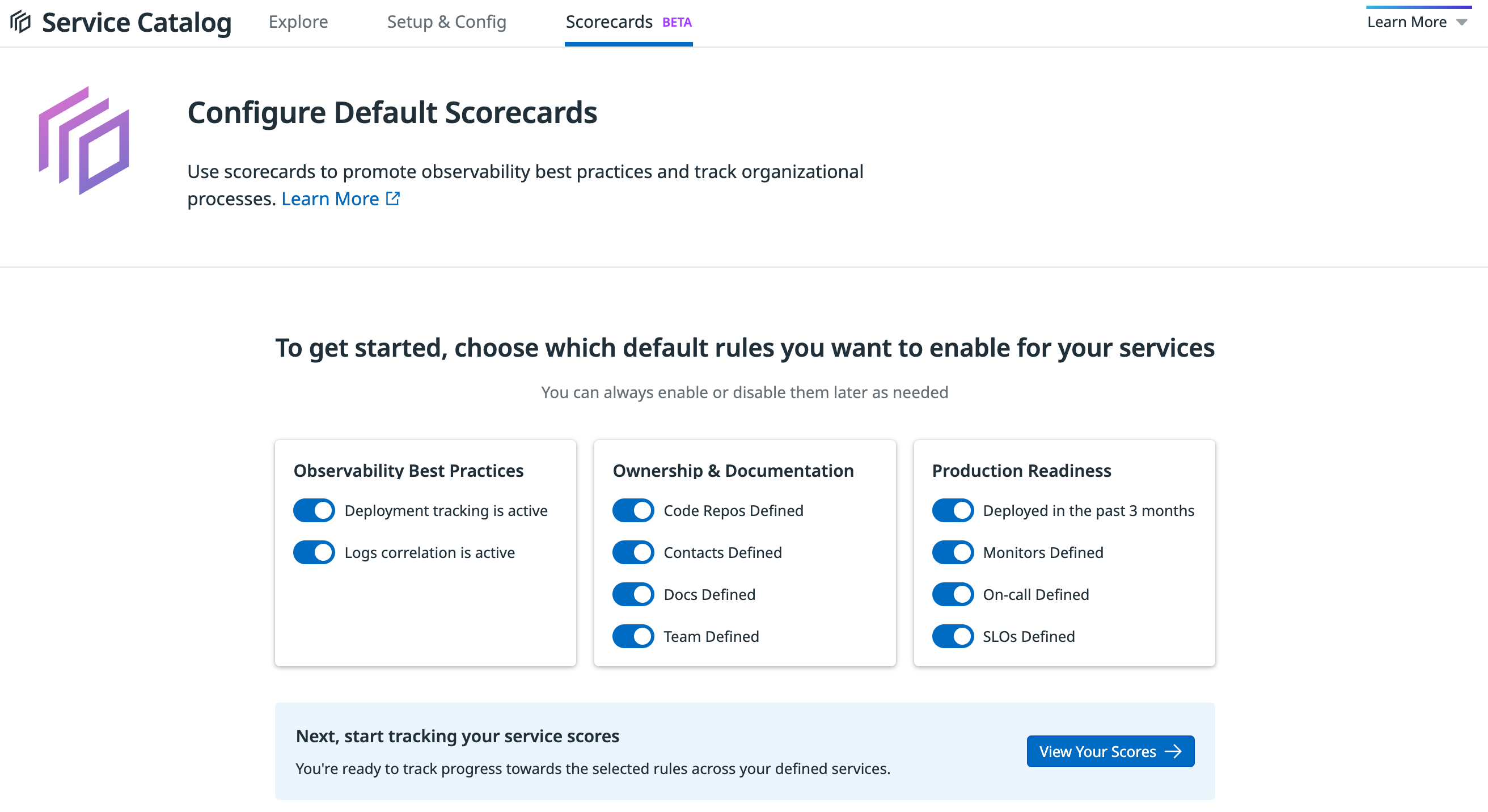- 重要な情報
- はじめに
- Datadog
- Datadog サイト
- DevSecOps
- AWS Lambda のサーバーレス
- エージェント
- インテグレーション
- コンテナ
- ダッシュボード
- アラート設定
- ログ管理
- トレーシング
- プロファイラー
- タグ
- API
- Service Catalog
- Session Replay
- Continuous Testing
- Synthetic モニタリング
- Incident Management
- Database Monitoring
- Cloud Security Management
- Cloud SIEM
- Application Security Management
- Workflow Automation
- CI Visibility
- Test Visibility
- Intelligent Test Runner
- Code Analysis
- Learning Center
- Support
- 用語集
- Standard Attributes
- ガイド
- インテグレーション
- エージェント
- OpenTelemetry
- 開発者
- 認可
- DogStatsD
- カスタムチェック
- インテグレーション
- Create an Agent-based Integration
- Create an API Integration
- Create a Log Pipeline
- Integration Assets Reference
- Build a Marketplace Offering
- Create a Tile
- Create an Integration Dashboard
- Create a Recommended Monitor
- Create a Cloud SIEM Detection Rule
- OAuth for Integrations
- Install Agent Integration Developer Tool
- サービスのチェック
- IDE インテグレーション
- コミュニティ
- ガイド
- Administrator's Guide
- API
- モバイルアプリケーション
- CoScreen
- Cloudcraft
- アプリ内
- Service Management
- インフラストラクチャー
- アプリケーションパフォーマンス
- APM
- Continuous Profiler
- データベース モニタリング
- Data Streams Monitoring
- Data Jobs Monitoring
- Digital Experience
- Software Delivery
- CI Visibility (CI/CDの可視化)
- CD Visibility
- Test Visibility
- Intelligent Test Runner
- Code Analysis
- Quality Gates
- DORA Metrics
- セキュリティ
- セキュリティの概要
- Cloud SIEM
- クラウド セキュリティ マネジメント
- Application Security Management
- AI Observability
- ログ管理
- Observability Pipelines(観測データの制御)
- ログ管理
- 管理
Scorecard Configuration
このページは日本語には対応しておりません。随時翻訳に取り組んでいます。
翻訳に関してご質問やご意見ございましたら、お気軽にご連絡ください。
翻訳に関してご質問やご意見ございましたら、お気軽にご連絡ください。
Scorecards are in Preview.
Datadog provides the following out-of-the-box scorecards based on a default set of rules: Production Readiness, Observability Best Practices, and Ownership & Documentation.
Set up default scorecards
To select which of the out-of-the-box rules are evaluated for each of the default scorecards:
- Open the Scorecards page in Service Catalog.
- Enable or disable rules to customize how the scores are calculated.
- Click View your scores to start tracking your progress toward the selected rules across your defined services.
How services are evaluated
After the default scorecards are set up, the Scorecards page in the Service Catalog shows the list of out-of-the-box rules and the percentage of services passing those rules. Click on a rule to see more details about passing and failing services and the teams that own them.
Production Readiness
The Production Readiness score for all services (unless otherwise indicated) is based on these rules:
- Have any SLOs defined
- Service Level Objectives (SLOs) provide a framework for defining clear targets around application performance, which helps you provide a consistent customer experience, balance feature development with platform stability, and improve communication with internal and external users.
- Have any monitors defined
- Monitors reduce downtime by helping your team quickly react to issues in your environment. Review recommended monitors.
- Specified on-call
- Improve the on-call experience for everyone by establishing clear ownership of your services. This gives your on-call engineers the correct point of contact during incidents, reducing the time it takes to resolve your incidents.
- Last deployment occurred within the last 3 months
- For services monitored by APM or USM. Agile development practices give you the ability to quickly address user feedback and pivot to developing the most important functionality for your end users.
Observability Best Practices
The Observability Best Practices score is based on the following rules:
- Deployment tracking is active
- For services monitored by APM or USM. Ensure smooth rollouts by implementing a version tag with Unified Service Tagging. As you roll out new versions of your functionality, Datadog captures and alerts on differences between the versions in error rates, number of requests, and more. This can help you understand when to roll back to previous versions to improve end user experience.
- Logs correlation is active
- For APM services, evaluated based on the past hour of logs detected. Correlation between APM and Logs improves the speed of troubleshooting for end users, saving you time during incidents and outages.
Ownership & Documentation
The Ownership & Documentation score is based on the following rules:
- Team defined
- Defining a Team makes it easier for your on-call staff to know which team to escalate to in case a service they are not familiar with is the root cause of an issue.
- Contacts defined
- Defining contacts reduces the time it takes for your on-call staff to escalate to the owner of another service, helping you recover your services faster from outages and incidents.
- Code repos defined
- Identifying code repositories enables your engineers to perform an initial investigation into an issue without having to contact the service’s owning team. This improves collaboration and helps your engineers increase their overall understanding of integration points.
- Any docs defined
- In the Service Catalog Other Links section, specify additional links to resources such as runbooks, dashboards, or other internal documentation. This helps with initial investigations and provides quick access to emergency remediation runbooks for outages and incidents.
How scores are calculated
Each out-of-the-box scorecard (Production Readiness, Observability Best Practices, Ownership & Documentation) is made up of a default set of rules. These reflect pass-fail conditions and are automatically evaluated once per day. A service’s score against custom rules is based on outcomes sent using the Scorecards API. To exclude a particular custom rule from a service’s score calculation, set its outcome to skip in the Scorecards API.
Individual rules may have restrictions based on data availability. For example, deployment-related rules rely on the availability of version tags through APM Unified Service Tagging.
Each rule lists a score for the percentage of services that are passing. Each scorecard has an overall score percentage that totals how many services are passing, across all rules—not how many services are passing all rules. Skipped and disabled rules are not included in this calculation.

